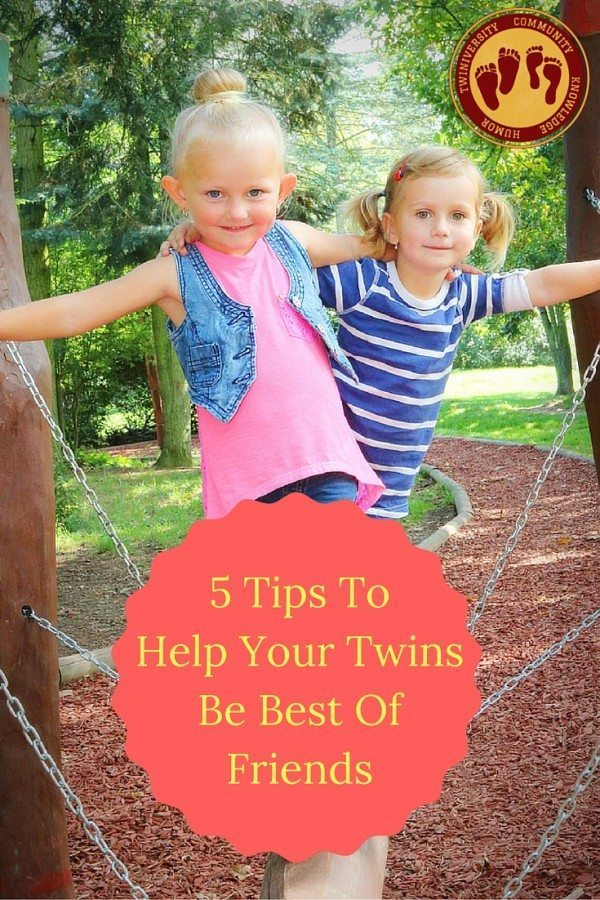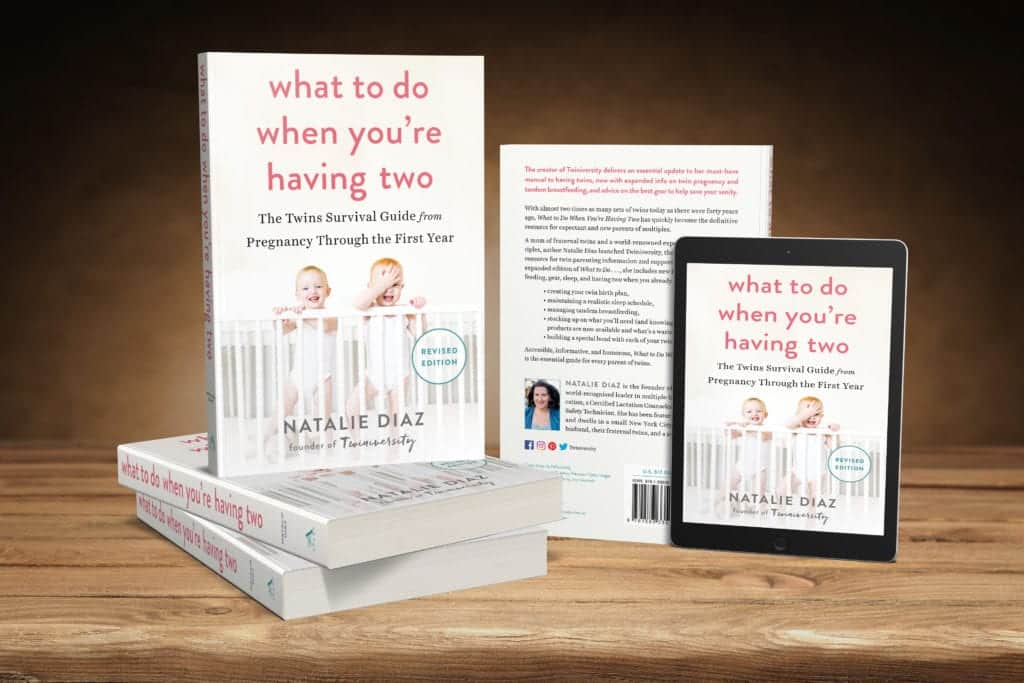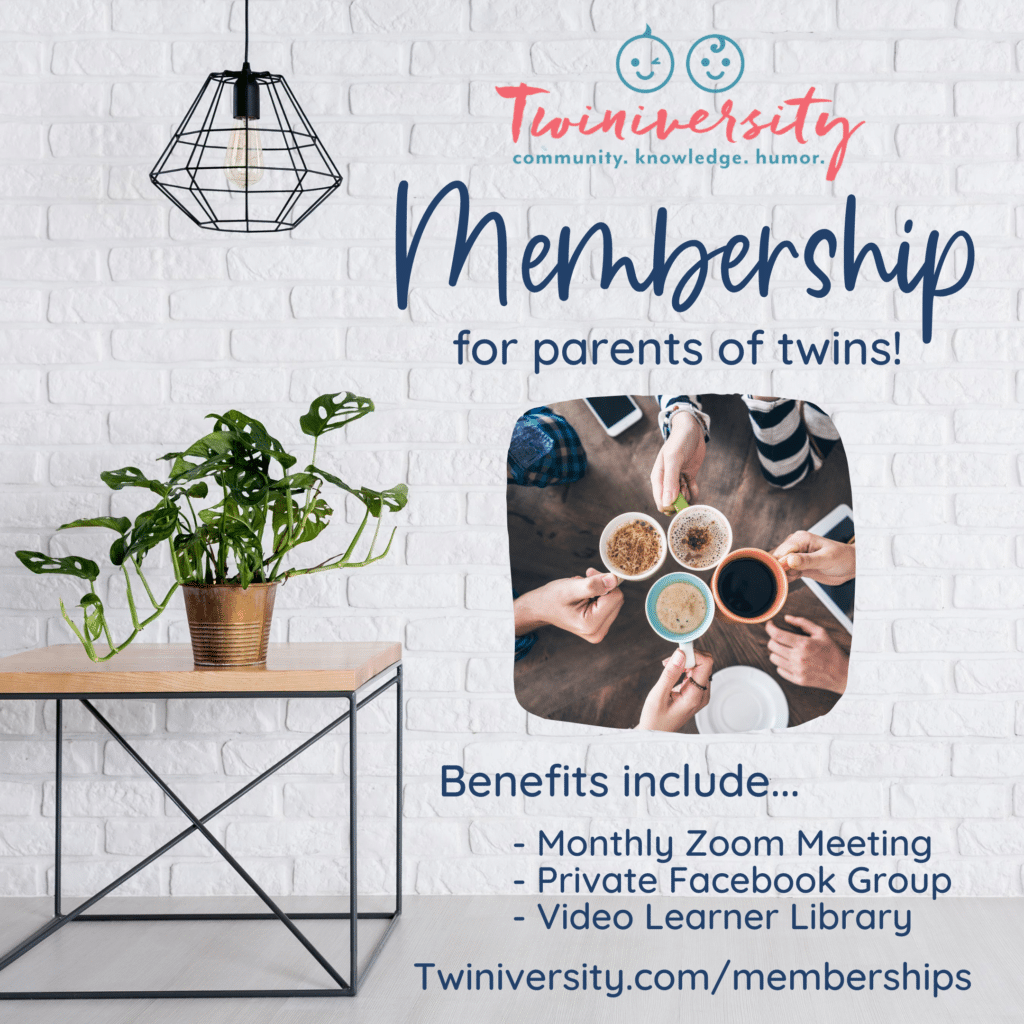Last updated on May 14th, 2024 at 04:38 pm
Twins, two like-minded individuals, can’t possibly get along, right? Or, they shouldn’t be together because they need to grow and “become individuals.” These kind of assumptions and opinions are made by “experts,” those who aren’t twins themselves. As adult identical twins who still live together and are the best of friends, we wish that other twins were also able to enjoy a close relationship with one another. We are more of an anomaly than the typical case. Most twins begin a forced separation early on. They are put into separate classes, encouraged to have different friends, and develop different interests.
But, twins can be the very best of friends. They have the same family background. They share values on religion, education, money, work, etc. Identical twins have the same physique and share its challenges, whether too tall/short, too many freckles, too fair-skinned, too curly/straight hair, etc. The very details of who one is are shared and felt by another individual. This special relationship of twins should be fostered, not forced apart. We believe that parents should give twins the chance to have the most unique and closest bond with another possible.

1. Don’t Compare
One of the most favorite and frequent questions that people ask identical twins are: “Which one is older?” The question is part jest and part sincere. The obvious answer is that twins are the same age, but on the other hand, it is one of the first ways that people can think to start telling twins apart. This innocent question though can lead to harmful comparisons of which twin is better, smarter, prettier, faster than the other.
A way to sidestep any comparison with questions such as age differences, our mom would intervene and say: “I am!” Raised eyebrows in surprise and laughter ensue from the grocery cashier or hair cutter. As a result, we did not learn and adopt the stereotypes that go along with birth order and personality differences with studies that report that the oldest is more competitive and organized while the youngest more funny and outgoing. Instead, we didn’t believe these typical characteristics. We believed and acted like we were the same age.
Now that we are older and live away from home, we don’t have our mom around to intervene. We keep the same spirit of not comparing with one another. We joke and take turns answering who’s older, “She’s older; lucky me, she pays” when we’re at the store. Or, we will feign an argument, “I’m older!” and “No, I’m older!”. This way, we focus on how special we are as twins and a pair, not as competing to be the better version of the same individual.

2. Let Them Be Together
Let your twins be together and do activities together. If your twins both show interest in the same activities encourage them both to play soccer, do ballet, or play musical instruments together. It’s easier for you in terms of driving to sports practices and music lessons, but also your twins can both thrive in their abilities.
Doing the same activities gives your twins the opportunity to work together and play together. Playing in the offensive position on our soccer team, my twin sister and I learned to pass the ball to each other and set the other up to score. We learned to cheer for each other’s scoring of goals. We learned to celebrate each other’s success and help each other shine, even when it meant taking second place. My twin’s win is my win.
3. Talk Positively About Their Relationship
“It’s so special that you’re twins.” “It’s God’s blessing.” “Twins bring good fortune.”
Such phrases encourage twins to see their relationship as special and unique. They realize that being a twin is unusual in a good way. Your talk influences their understanding of being a twin. They believe what you say. Help them recognize the built-in best friend that God gave them for their entire life.
4. Teach Them to Share … but Give Them Their Own Things Too
Twins already share many things, but there is value in letting them have things to call their own. Whether it is having their own comb (a pink one and a purple one) or toy (a blue truck and a green truck), twins learn that they have to take care of it. If they lose the comb or toy, it is their fault; they can’t point to their twin and pout.

A sense of individual ownership and personal responsibility is an important asset to develop. One way to start is to give twins each her things in small ways, such as toiletries and toys. But, keep possessions in perspective. If your twins fight over a toy, ask them whether they love the toy more than each other. If so, then it’s time to put the toy away. They learn to value each other and their relationship over things.
5. Give Equally
One of the best things a parent can do, whether of twins or not, is to treat their children equally with love and respect. Favoritism–being partial or giving more privileges to one–develops animosity, jealousy, and feelings of inadequacy.
Children imitate those around them, and when they see that you are giving equal attention to them and to their siblings, they pick up the same behavior and practice love and respect as well. Our mom made sure to recognize our older brother in front of people, especially when conversations first centered on my sister and I being twins. She would say, “Their older brother also loves cookies,” or something along the lines of the topic. Giving attention to our brother helped him feel special too and not overlooked.
By implementing these 5 tips, you will give your twins a gift and help them become and stay best friends.

Keri and Kelsi, identical twins and best friends, share a passion for language, studying Spanish, English, and finally capped off their academic career with a PhD in linguistics! Living in sunny Florida, they can be seen running, swimming, and playing tennis (doubles, of course!). They are known by their neighbors and their blog followers for their banana bread and cookies and their musings about cookbooks and cooking shows.
Related Articles
Are You a New Twin Parent?
Check out Natalie Diaz’s book:
“What To Do When You’re Having Two
The Twin Survival Guide From Pregnancy Through the First Year”

In What to Do When You’re Having Two: The Twins Survival Guide from Pregnancy Through the First Year, national twins guru and founder of Twiniversity (and twin mom herself!) Natalie Diaz provides a no-holds-barred resource about life with twins, from pregnancy and birth all the way through your duo’s first year of life.
Accessible and informative, What to Do When You’re Having Two
is the must-have manual for all parents of twins.

Have you taken your expecting twins class yet? We offer a great class on demand so you can take it on your own schedule! There are so many video modules covering everything from your twins’ baby registry to your first week at home with twins! Sign up today to get started before your twins arrive.

Need some twin parent friends? Get the support you need with a Twiniversity Membership. Benefits include a monthly twin parent club meeting on Zoom, access to a private Facebook group just for twin parents, and a video library of twin parenting lessons. Visit Twiniversity.com/membership to join today!

Twiniversity is the #1 source for parents of
multiples, and we are growing faster every day!
Find us all over the web:
Or contact us by email at community@twiniversity.com







